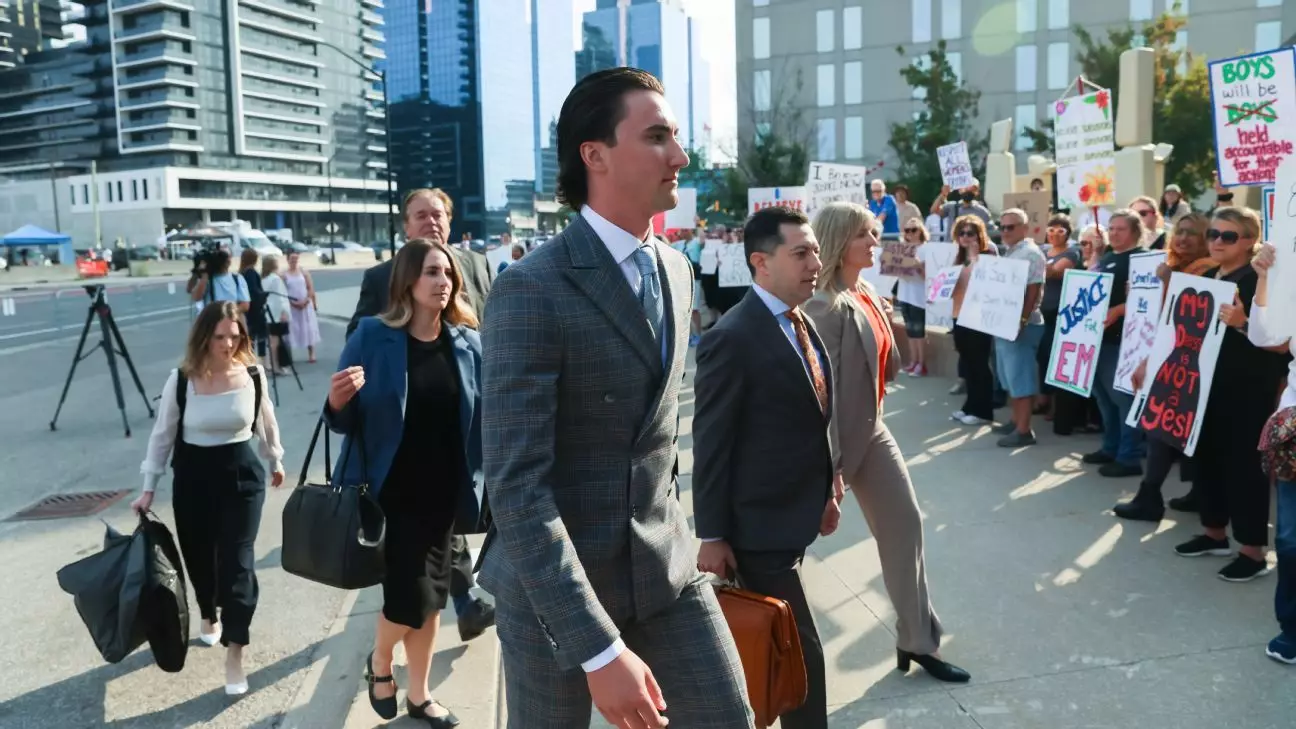The recent acquittal of five former junior hockey players on serious sexual assault charges underscores the profound importance of a meticulous and unbiased judicial process. While the allegations shook the foundation of trust and camaraderie associated with young athletes, the court’s detailed examination revealed the intricate nuances that often underpin high-profile cases. The judge’s dismissal was rooted in a careful assessment of credibility, highlighting a fundamental truth: justice demands rigor, impartiality, and adherence to facts over emotive narratives. This verdict, while celebrated by the defense as a hard-won victory, serves as a stark reminder that in legal proceedings, claims alone do not determine guilt—evidence and consistency do.
The Fallibility of Witness Testimony and the Nature of Credibility
One of the most critical aspects of the court’s decision was its skepticism of the complainant’s testimony. The judge pointed out troubling inconsistencies and exaggerated claims about intoxication, which significantly undermined her credibility. This analysis reveals an often overlooked reality: human memory, especially under distressing circumstances, can be unreliable. Furthermore, the case exemplifies how the passage of time and emotional biases can distort recollections, making it impossible for courts to convict solely based on narrative accounts lacking corroborating evidence. The court’s ruling affirms that credibility assessments are essential to safeguard the innocent from wrongful convictions and uphold the integrity of the justice system.
The Role of Media and Public Perception in Sensitive Cases
In cases involving prominent figures, media coverage and societal opinion frequently complicate the pursuit of justice. The NHL’s initial response—placing the players ineligible to compete—reflects a tendency to act swiftly out of concern for reputation management, often ahead of legal conclusions. While the league’s stance aims to promote accountability, it also raises questions about the potential for judgment before facts are fully established. The backlash from various stakeholders highlights society’s struggle to balance due process with the demand for swift moral and ethical judgments. Ultimately, the case exemplifies the importance of reserving judgment until all facts are thoroughly examined, rather than succumbing to emotional reactions driven by sensationalism.
Implications for the Culture of Sports and Justice
This incident illuminates broader issues within sports culture—particularly how allegations of misconduct are handled and the consequences for athletes’ careers. The players’ current ineligibility illustrates a tendency within professional sports to impose sanctions based on allegations, sometimes before legal verdicts are reached. While protecting the integrity of the sport is vital, it should not come at the expense of fairness. The controversy also sparks a broader conversation about how institutions should reevaluate policies to ensure they do not inadvertently punish the innocent or influence judicial proceedings unduly. Moving forward, both sports leagues and legal authorities should strive for a balance that respects due process, acknowledging that false accusations devastate lives and careers in ways that are often irreversible.
A Critical Reflection on Justice and Accountability
This case is a powerful illustration of how the justice system operates not as a tool for quick judgment but as a custodian of truth and fairness. The fact that the government opted not to appeal the acquittal signifies confidence in the process and results of a complex judicial examination. Still, it also invites society to reflect on how we handle allegations and the importance of maintaining integrity and justice over sensational headlines. While the accused may have been exonerated, the underlying issues of trust, credibility, and societal responsibility remain pressing. It is only through relentless commitment to fairness—both in courtrooms and public discourse—that society can genuinely uphold the principles of justice for all.

